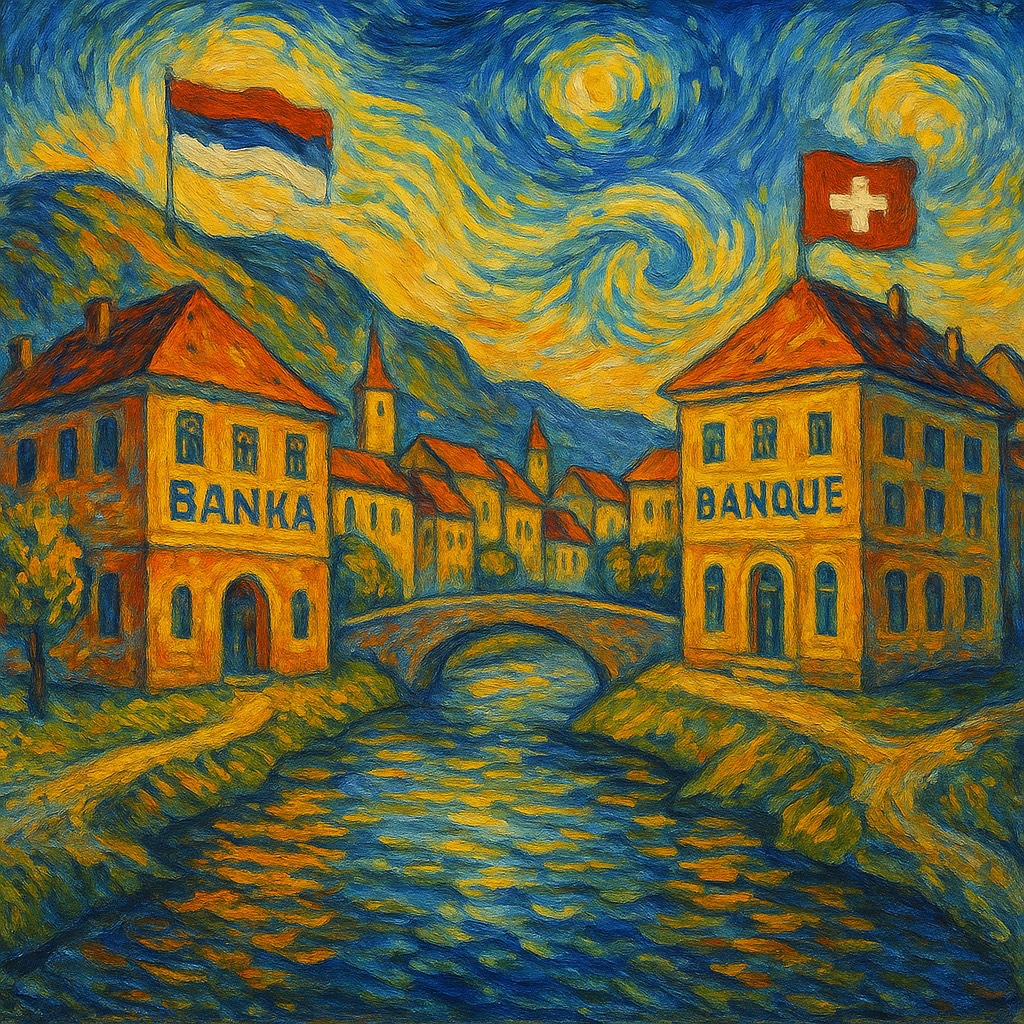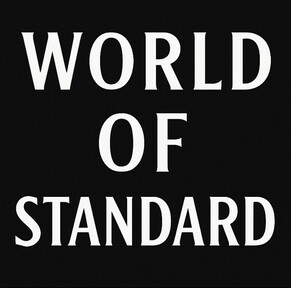Column by the Group Director Slaviša Lakić: Why is Republika Srpska a Tax Haven in the Heart of Europe
22.06.2025By Slaviša Lakić
While lawyers and bankers in Geneva frantically consider Plan B for their millionaire clients amid the looming threat of draconian taxes, I sit in Bijeljina – no tie, just a calculator at hand – calmly wrapping up another workday. And no, it’s not a mistake: Republika Srpska can genuinely be seen as a small tax haven in the heart of Europe. Here’s why.
Tax Minimalism in Republika Srpska
Republika Srpska embraces a philosophy of minimal taxation, especially when it comes to family wealth and business operations. As a local accountant, I often surprise foreign clients with just how simplified things can be here. In short, RS offers several key advantages:
No inheritance or gift tax: Unlike most of Europe (and even the neighboring entity, the Federation of Bosnia and Herzegovina, where cantons charge 2–10%), there is absolutely no tax on wealth transferred to heirs or gifted during one’s lifetime. In other words, what your descendants inherit from you remains untouched by the state.
Simple asset transfers: RS also doesn’t impose a special property transfer tax on real estate or other assets. Ownership transfers are reduced to mere formalities with minimal fees, making it significantly easier to plan inheritances and restructure family holdings (and yes, trust me, even us tieless accountants here know all about it!).
Low corporate tax rate (10%): The corporate income tax in all of Bosnia and Herzegovina, including RS, is a flat 10% — among the lowest in Europe. This straightforward and low rate makes RS an attractive destination for setting up companies and holding structures. Effectively, the state takes only a small slice of your pie — the rest stays with you.
Thanks to this kind of tax minimalism, Republika Srpska is quietly becoming a haven for those who wish to preserve family wealth. Some may argue that “haven” is too strong a word, but compared to the rest of Europe — as we’ll see — RS really does feel like a paradise of tax policy.
Inheritance Taxes in Europe: From 0% to 50%
Let’s cross the border. What’s happening in the rest of Europe? Unlike Republika Srpska, many European countries heavily tax inheritances and gifts — often quite generously. Here are a few examples that explain why wealthy Europeans are constantly looking for a “loophole”:
Germany: Inheritance and gift taxes range from 7% to a staggering 50%, depending on the relationship and the value of the estate. Close family members pay less, but if you’re a distant relative — or not related at all — you could end up paying half.
Italy: Though known for its Mediterranean ease, inheritance taxes are anything but relaxed — ranging from 4% to 8%, depending on kinship, with certain exemptions. Spouses and children enjoy high tax-free thresholds (up to €1 million), but amounts above that are taxed. For distant relatives or unrelated heirs, the rate climbs to 8%.
France: Famous for its progressive taxation, France imposes up to 45% on direct heirs (children, parents) for large estates. It gets even worse for more distant heirs or unrelated individuals — taxes can go up to 60%! Plus, exemption thresholds (e.g., ~€100,000 per child) have been frozen for years, meaning inflation effectively increases the tax burden year by year.
Switzerland (for now): Unlike most EU countries, Switzerland has no federal inheritance tax — only cantonal ones, and they tend to be moderate. Many cantons fully exempt close family members. However, as we’ll see next, even the Swiss may soon be heading toward a French-style tax regime.
From these examples, it’s clear that Europe isn’t kind to inherited wealth. While we in RS impose no such taxes, in Berlin, Rome, or Paris, tax collectors are counting double-digit percentages. It’s no surprise, then, that tax planners are increasingly searching for softer regulatory zones within Europe. And, somewhat unexpectedly, one of those zones is right here — in our very own Bosnia and Herzegovina.
Panic in Switzerland Ahead of the Tax Referendum
The latest example of tax-related drama on European soil comes from Switzerland — a country long considered a safe haven for the wealthy. However, that image has been shaken by the announcement of a referendum that has stunned both the Swiss financial elite and their clients. At the initiative of the far-left (the Young Socialists), Swiss citizens will likely vote this autumn on introducing a federal inheritance and gift tax of 50% on wealth exceeding 50 million Swiss francs — without any exemptions, not even for spouses or children! In other words, the state would take half of everything above that threshold. For a country that has fiercely guarded its reputation as a tax haven for decades, this is nothing short of shock therapy.
As reported by the Financial Times, panic has gripped Swiss bankers and lawyers. Many are openly warning of a mass exodus of wealthy families if the proposed tax is passed. Even now, months before the vote, Switzerland’s richest are preparing to relocate: some have already transferred their residency to Liechtenstein or further afield, “just in case.” Frédéric Rochat of the prestigious bank Lombard Odier confirmed that some Swiss families have decided not to take any risks and are moving before the vote. One Zurich-based banker revealed that his number one client has already moved abroad, fearing political instability — even if the referendum ultimately fails.
The situation is reminiscent of the UK scenario from several years ago: in 2017, the United Kingdom expanded inheritance tax to include global assets of so-called "non-dom" residents, triggering an exodus of the wealthy from London. Swiss experts now fear a déjà vu moment. “This would be a catastrophe for Switzerland,” said Peter Spuhler, billionaire and owner of Stadler Rail, estimating that his heirs could end up paying 2 billion francs in taxes. The respected economic association Economiesuisse has also condemned the proposal, arguing that it threatens Switzerland’s status as a reliable and stable business environment.
One can imagine the scene: behind closed doors in Geneva and Zurich, advisors are loosening their ties and frantically searching for solutions, while in my Bijeljina office — where a tie hasn’t been part of the dress code for ages — there’s no such drama. 😊 Here, tax stability is something we’re used to. Truly, while the Alpine idyll trembles with political risk, the Balkan “haven” remains calm.
Of course, it remains to be seen whether Swiss voters will actually approve such a radical tax (analysts are skeptical, given Switzerland’s traditional resistance to wealth taxes). But the mere fact that this is being seriously debated has cast a long shadow of doubt over Switzerland. Bankers are whispering to their clients: “diversify your locations.” And where might they go next? That’s where our region comes into play.
Stable and Discreet: A Call to Wealthy Families
At the end of the day, from the perspective of a Balkan tax advisor, I offer a gentle invitation to all wealthy families and individuals seeking a stable tax home in a European setting: consider Bosnia and Herzegovina — especially Republika Srpska — as your new base. We may not have the glamour of Geneva or the Côte d’Azur, but we offer what truly matters: security, discretion, and rational tax conditions for preserving your wealth.
Republika Srpska is a politically calm and legally coherent environment, with laws that don’t change at the whim of populist waves. Your family fortune here won’t be exposed to surprise referendums or crippling tax hikes. Discretion is guaranteed — this Balkan setting highly values privacy and understatement (you won’t make headlines just because you’re wealthy). And the rational tax treatment speaks for itself: taxes are low and predictable, procedures are simple, and Europe is just around the corner.
In other words, if you’re seeking a family capital haven within the European sphere — geographically and culturally — that offers conditions on par with Caribbean offshore destinations, maybe it’s time to turn your attention to a small spot on the Balkans. Here, our haven may be quieter and more modest — but it’s very real.
Welcome to Republika Srpska — the tax haven in the heart of Europe.
(Slaviša Lakić, Director of StandardPrva)
/ / /
"Standard Prva" LLC Bijeljina is a company registered in Bijeljina at the District Commercial Court in Bijeljina. Company’s activities are accountancy, repurchases of receivables, angel investing and other related services. Distressed debt is a part of the Group within which the company repurchases the receivables, which function and are not returned regularly.
Lawyer’s Office Stevanović is the leading lawyer’s office in the region with the seat in Bijeljina. The LO abbreviation represents Lawyer’s Office of Vesna Stevanović and Lawyer’s Office of Miloš Stevanović.
Contact for media press@advokati-stevanovic.com or via telephone 00 387 55 230 000 or 00387 55 22 4444.





